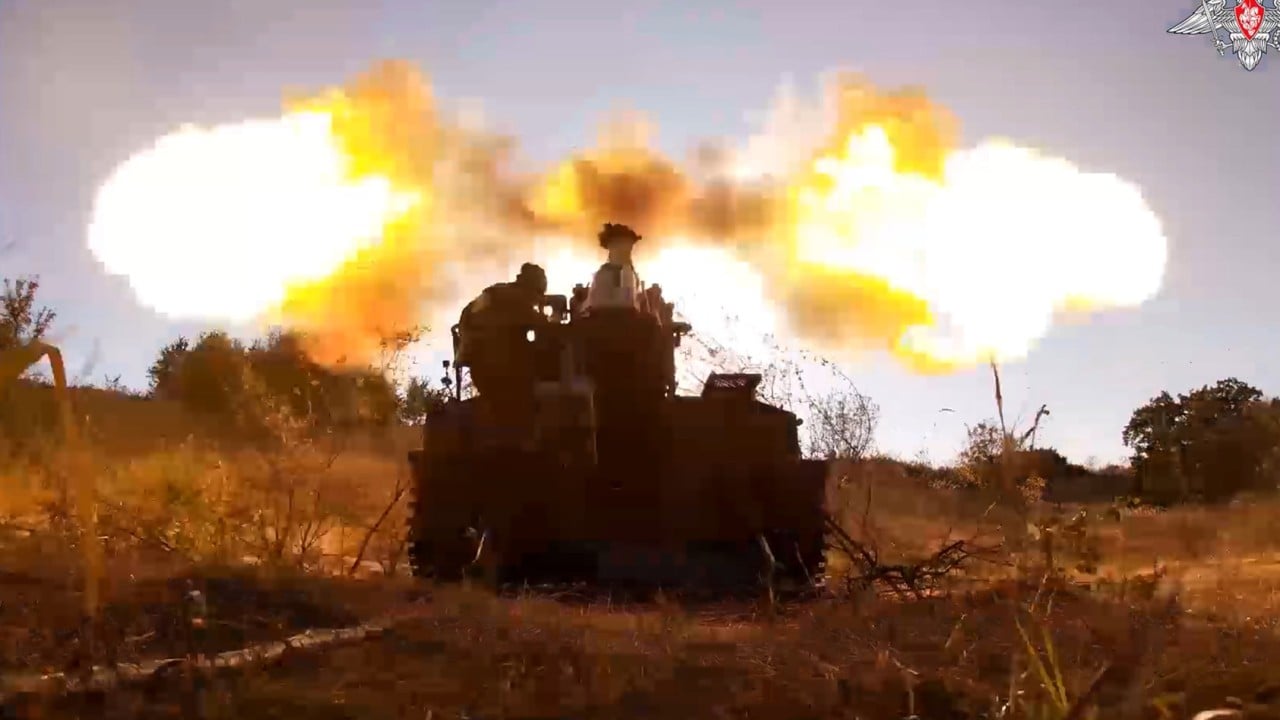Ukraine has destroyed a key bridge in Russia’s Kursk region and struck a second one nearby, less than two weeks into its stunning cross-border incursion, disrupting Russian supply routes and possibly signalling that its troops are planning to dig in.
Russia’s pro-Kremlin military bloggers have acknowledged that the destruction of the first bridge, which spanned the Seim River near the town of Glushkovo, will impede deliveries of supplies to Russian forces repelling Ukraine’s incursion, although Moscow could still use pontoons and smaller bridges in the area. Ukraine’s air force chief, Lieutenant Mykola Oleshchuk, released a video on Friday of a Ukrainian air strike that split the bridge in two.
Less than two days later, Ukrainian troops hit a second bridge in Russia, according to Oleshchuk and the Russian regional governor, Alexei Smirnov.
As of Sunday morning, there were no official reports on where exactly the second bridge attack took place. Russian Telegram channels claimed that a second bridge over the Seim, in the village of Zvannoe, had been struck.
According to Russia’s Mash news site, the attacks left the area with just one intact bridge. Journalists could not immediately verify these claims – but if confirmed, the Ukrainian strikes would further complicate Moscow’s attempts to replenish its forces in Kursk and evacuate civilians.
Glushkovo lies some 12 kilometres (7.5 miles) north of the Ukrainian border, and about 16 kilometres (10 miles) northwest of the main battle zone in Kursk. Zvannoe is located a further 8 kilometres (5 miles) northeast.

Kyiv has been tight-lipped about the planned scope and goals of its lightning push into Russia, the largest attack on the country since World War II, which took the Kremlin by surprise and saw scores of villages and hundreds of prisoners fall into Ukrainian hands.
The Ukrainians drove deep into the Kursk region in several directions, facing little resistance and sowing chaos and panic. Ukraine’s Commander in Chief, General Oleksandr Syrskyi, claimed last week that his forces had advanced across 1,000 square kilometres (390 square miles) of the Kursk region, although it was not possible to independently verify what exactly Ukrainian forces effectively control.
But the strikes on bridges, apparently aimed to stymie a Russian counterpush in Kursk, could mean that Kyiv intends to seek a foothold in the region – or at least signal to Moscow that it plans to do so.
Analysts say that although Ukraine could try to consolidate its gains within Russia, it would be a risky manoeuvre given Kyiv’s limited resources, because supply lines extending deep into Kursk would be vulnerable to Russian strikes.
The incursion has already boosted Ukraine’s morale, sapped by a failed counteroffensive last summer and months of grinding Russian gains in the eastern Donbas region, and proved its ability to take the initiative.
It has resembled Ukraine’s lightning operation from September 2022, led by Syrskyi, in which its forces reclaimed control of the northeastern Kharkiv region after taking advantage of Russian manpower shortages and a lack of field fortifications.


